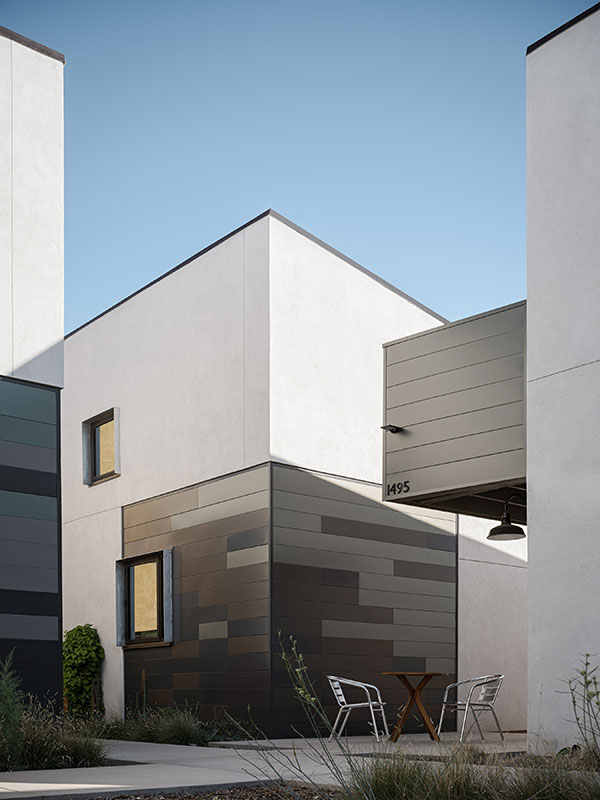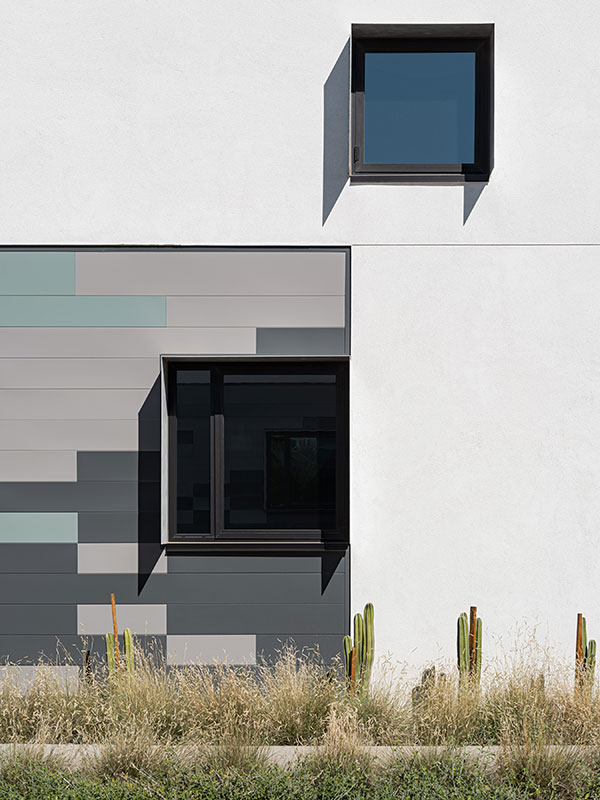Tempe Micro Estates


Architect / Designer:
Studio:
Design Team:
180 Degrees Design+Build – Builder
Kevin Kellogg – Planning Lead
coLAB studio – Lead Design Architect, Architect of Record
Cypress Engineering – Civil Engineering
Struktur – structural engineering
Woodward Engineering – Electrical engineering
AME – Mechanical + Plumbing engineering
Roehner & Ryan – Photographer
Copyright:
Country:
The United States faces an enormous housing shortage, requiring a wide range of creative explorations as potential solutions. There will never be a “one size fits all” fix. Enter the Tempe Micro Estates and its special team and circumstances.
Tempe, Arizona is a fairly small land-locked city within Metropolitan Phoenix. Typically friendly to development, the city has grown considerably and quickly- though mostly with market rate housing. The city has one of the nation’s largest universities, yet recent graduates and area work-force cannot afford Tempe’s typical housing options.
However, Tempe is also progressive and interested in creative solutions. The city has been utilizing funds from the US Department of Housing and Urban Development to purchase sites within its “Urban Core” for affordable housing options. Utilizing an RFP process that required creativity from development teams for a small site near the university and downtown, The Micro Estates team answered the call and won the commission.
The project consists of thirteen small (600 SF) environmentally friendly houses with scale and arrangement of the homes providing affordability and a generous central garden space. Because the developer was also a land-trust, home ownership is based on 99-year renewable leases. To keep the homes affordable over time, each owner must pass down 15% of their built-up equity to subsequent owners.
This development is a model for affordability, community, and good stewardship for many urban areas in the United States and beyond.
Site:
At the South end of a small residential street, the .65 acre (~28,300 SF) “L” shaped lot backed onto a major Union Pacific railway. The site is “walkable,” with the university, shopping, parks, groceries, and restaurants all within a 10-minute walk.
Brief:
Tempe’s RFP required a minimum of 13 homes for ownership. A majority of those homes (7 of the 13) to be sold as affordable at 80% of area median-income level. The homes should be either “tiny homes” (under 500 SF) or “small houses” (500-700 SF) on independent property lots. In addition, there should be a larger communal building (900 SF) where the community and visitors may gather.
Design:
The main inspiration sprung from existing “micro-neighborhood” concepts. All parking occurs on the smaller north-west corner of the L-shaped lot. This minimizes hard paving and maximizes space for gardens and food production. The communal space was placed directly adjacent to the street and parking.
Each house has one side against a side property lot-line, constructed as a 1-hour wall without openings. The opposite side would allow for a semi-private exterior space. This required each home to contain a bedroom mezzanine with stairs. To save space, the bathroom is placed beneath the stair. The unit contains no hallways or unusable space. Two interior walls contain the bathroom, which keeps the living area as flexible and spacious as possible.
coLAB studio, llc
Established in 2004 as a dual-laboratory for art and architectural practice which works in collaboration with individuals and companies to study and amplify nature and culture in the built environment. The firm exists at the intersection of analytical, practical, experiential, environmental, and participative practices.
We work on residential and commercial architecture, plus public and studio art. Our projects are widely recognized, published, and awarded.
An unusual business model allows the studio to be selective regarding projects we take on by limiting the extent of “employees” to the two founders, Maria and Matthew Salenger, and draw from a freelance cohort of repeat collaborators on a per-project/as-needed basis. This enhanced project team has facilitated completion of projects of 85,000 sf and $15 million construction budgets, though much larger is feasible for our studio.











